row
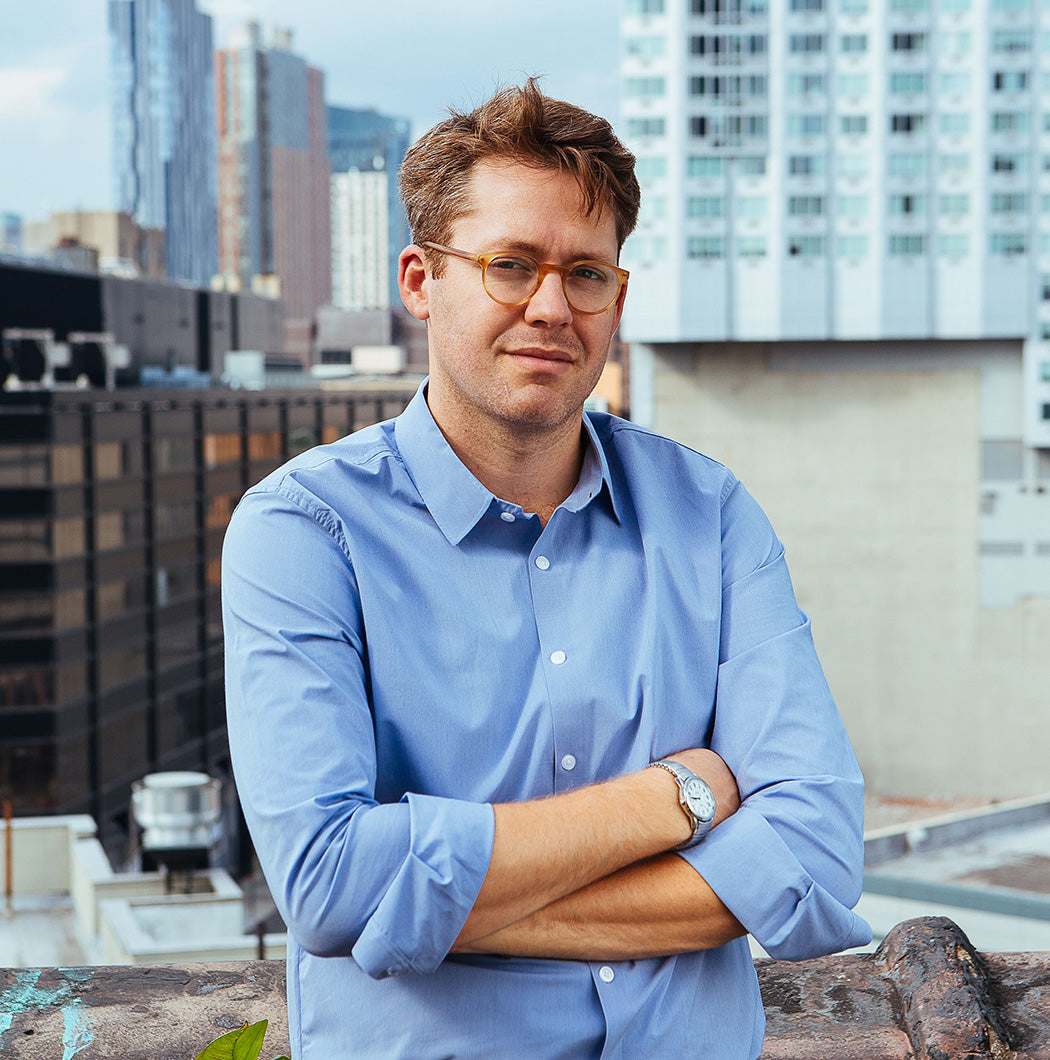
By taking care of what you can control, you’re better positioned for success against the unknown. It’s what being a Solver is all about – and how one could describe Matt Lieber’s role within podcast company Gimlet Media, which he and Alex Blumberg co-founded a year ago.
If you follow the Gimlet show Reply All, you may know that Matt has been described as “a comforter accidentally warmed by the radiator”, or, “the band you discovered in high school long before anyone else did”. Ask Matt though, and he’ll tell you he’s the one handling “the business side of the business”, with public radio heavy-hitter Alex Blumberg (former Planet Money host and This American Life producer) at the company’s creative helm.
“Our product is something that we reinvent week after week after week, because we have to tell new stories,” Matt explains. “And there’s a lot of ambiguity and uncertainty in that. So what I want is to have a really clear, predictable support structure around the shows and creative teams so that they have to worry as little as possible about how the business is going to run or about how the company works, and instead can focus all of their creative energies on the task of finding and telling stories.”
And he’s certainly succeeded. Just a year into its existence, Gimlet has already accrued hundred of thousands of weekly listeners across its three shows – StartUp, Reply All, and Mystery Show – with regular top positioning on podcast charts. Many of these listeners got to know the company intimately through StartUp, the aptly-titled podcast chronicling Matt and Alex’s founding journey.
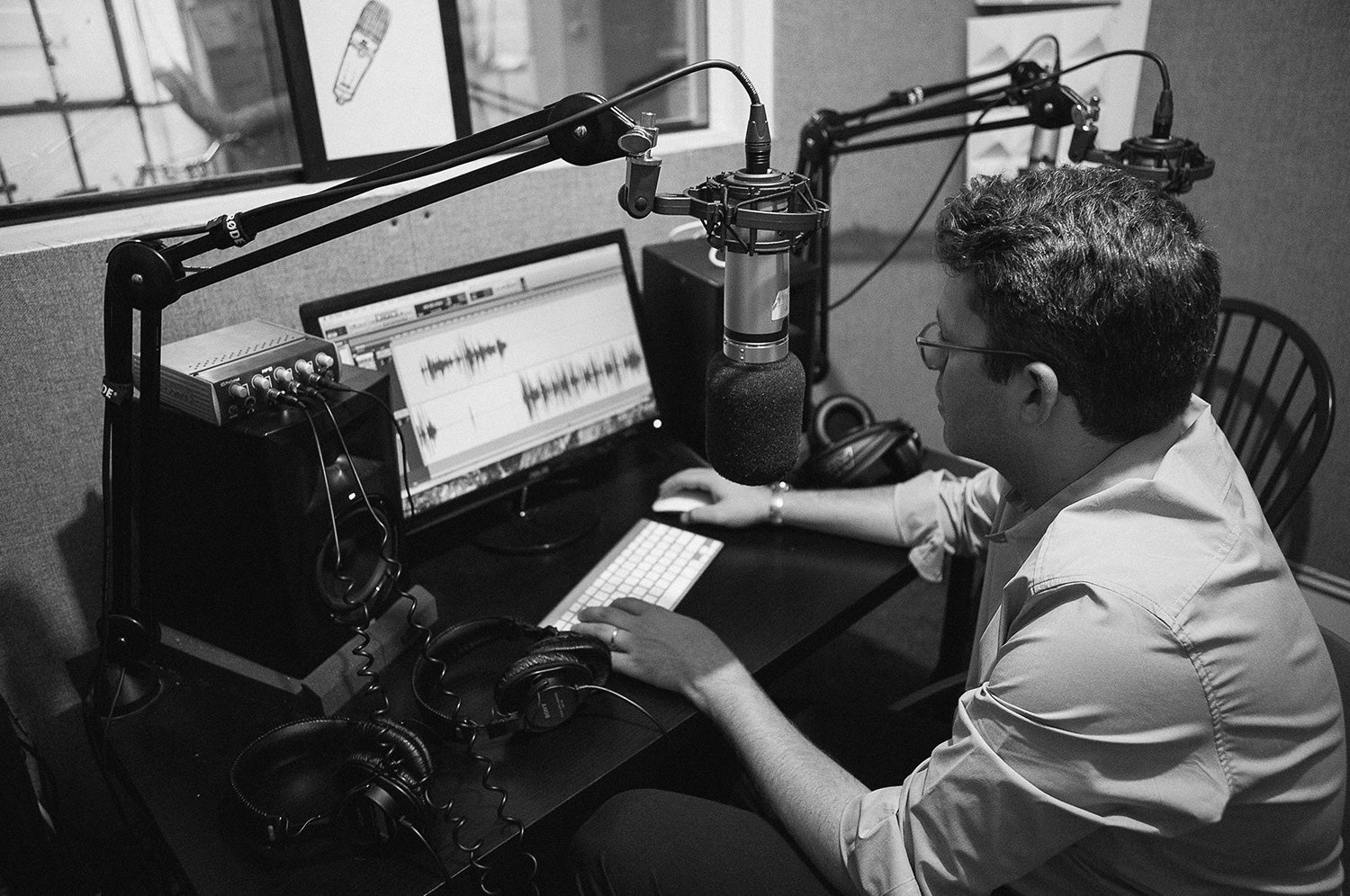
We sat down with Matt at Gimlet’s Brooklyn HQ to talk more about what goes on – both inside and outside the soundbooth – to produce the highest quality shows possible.
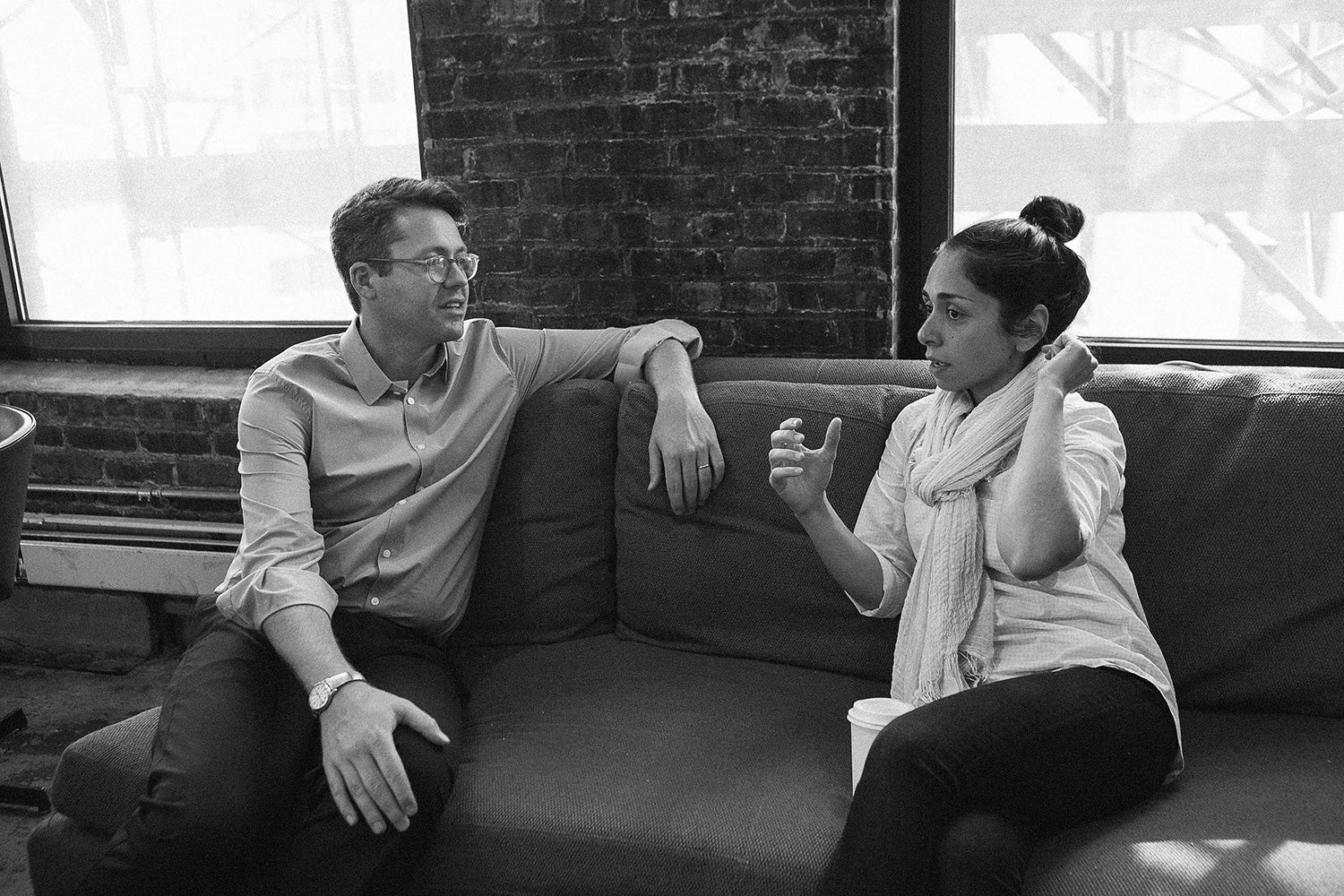
You've experienced a range of environments in your career. How would you describe the environment at Gimlet?
Our work is a team sport, not something that you can do alone. If you listen to each podcast, it probably sounds like you’re listening to the work of one person, because you’re just hearing the host. But it’s the whole team that makes that possible. The episodes that sound the easiest, smoothest, and most relaxing are the ones that took the most work and the most number of people. So we labor pretty intensely to create the appearance of ease.
We’re also very focused on the listener, and on providing them with an immersive, exciting experience. If you come to Gimlet, you’ll see producers and editors and hosts sitting around a table going over a story again and again. That’s a level of judgement in our shaping process that I think is great. The team here is a strong proxy of our audience – a good first judge of what they’ll like.
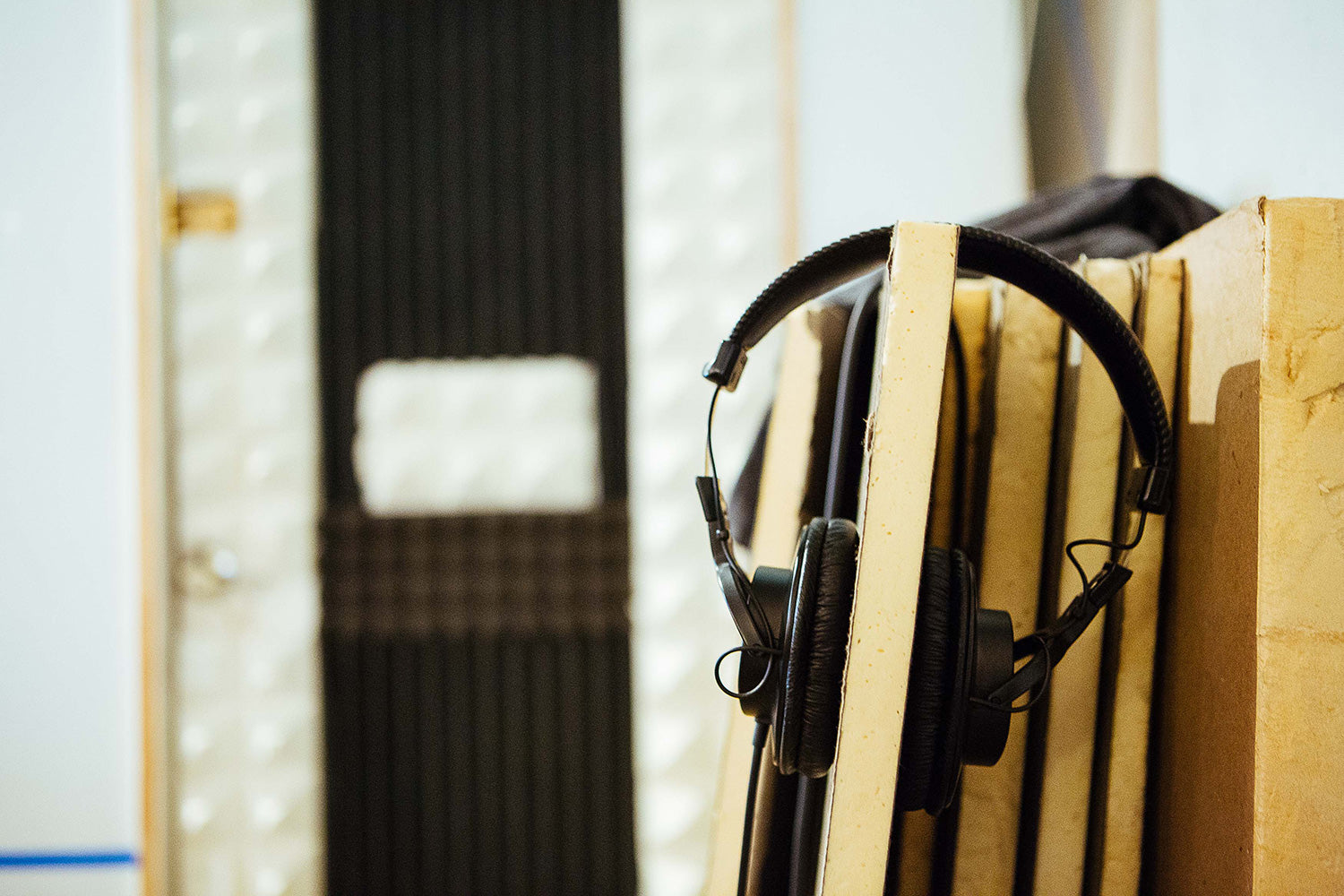
Originally, StartUp was only supposed to be four to six episodes to promote the launch of Gimlet. A year and two extremely successful seasons later, it's a Gimlet fixture. Why did you decide to build out StartUp into a permanent show?
Because there was this big, engaged audience invested in what we were doing, and we didn’t want to give that up. It also turned out to be a great way to tell the company story, and communicate to our audience what’s going on at Gimlet and what we’re working on.
StartUp gave a large number of listeners a personal relationship with the company and with us. And I think that's super powerful, because then they want to tell their friends about us. That word-of-mouth growth really made a difference.
How did recording yourselves for StartUp affect the culture at Gimlet?
Transparency is one of the core principles of our culture, and that comes from StartUp. We put everything into Startup. It’s obviously highly edited, but everything we aired is true. There were no big, significant parts of what was going on at the company left out. We were definitely anxious at times about whether to include certain things in the show; that episode about burnout, for one, was something that I really didn’t want us to include in the show because I thought it would turn off new potential employees. But it turned out to have the exact opposite effect. I think being authentic and showing ourselves for who we really are – an incredibly passionate group who cares about what it's doing – has actually made people want to be with the company even more.
You’ve said that you’re less concerned with having "x" number of listeners per show than you are having loyal, long-term listeners. How do you work to ensure that?
It’s about doing great things. We’re a very long-term growth company. Our show producers are making decisions to keep listeners interested for the long term. So we don’t do things like – and there’s no such thing as clickbait podcasting, where you promise one thing and deliver – but we don’t do that sort of thing. If anything, I think we do the opposite. We often do the less sexy thing, but the deeper thing, for listeners.
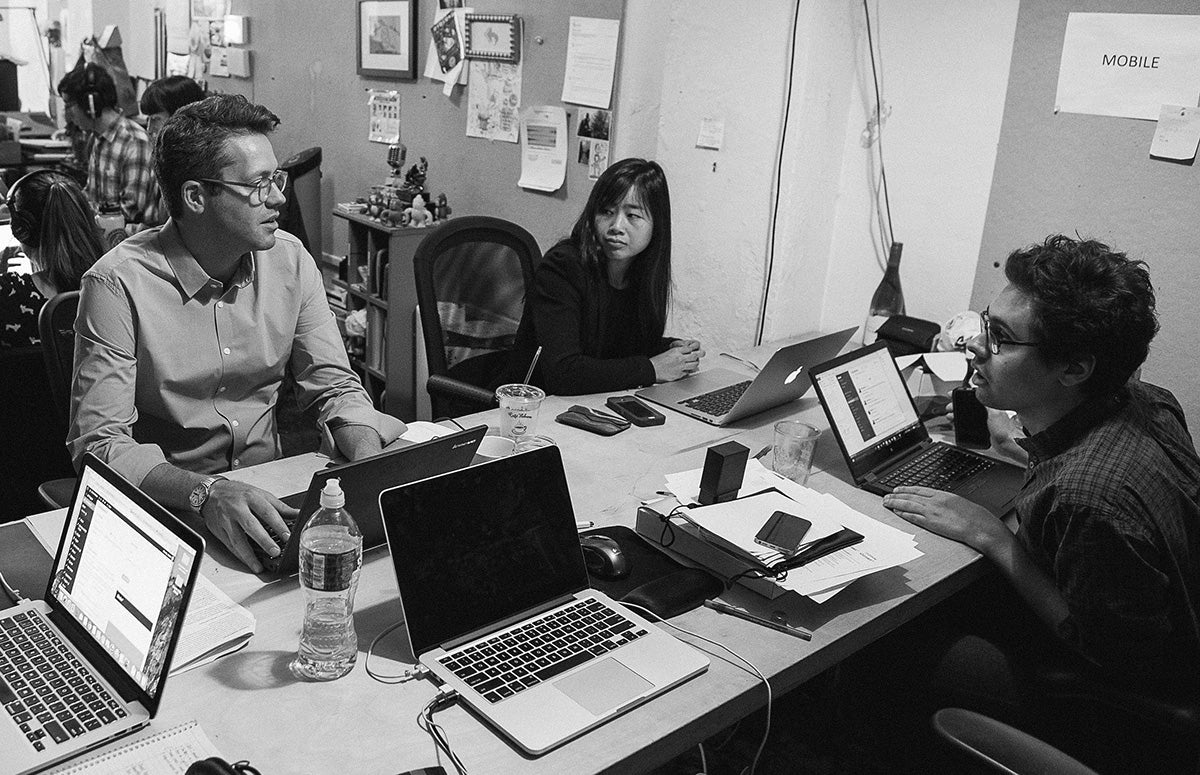
How has the content plan evolved since you started?
The content plan is pretty consistent with what we planned, which was to do three shows in the first year. I would say we’ve accelerated a bit; we’re launching more shows in the next six months than we’d originally planned, and we have a much larger audience than we’d originally expected. Actually, that's one thing we haven't been great at – forecasting audience. We had thought the audience would be quite a bit smaller, and that’s turned out not to be the case.
What would you say that, at this stage of the company, is the most common obstacle you come up against?
It’s hard for me to answer that question without sounding like a total jerk, because honestly, our first year has been pretty successful. We haven’t really faced any huge challenges. We’ve made three shows and each of them has been a hit, so our batting average that is way better than we ever expected. We’ve also recruited a killer team – just an incredibly strong team of producers, editors, and operators – and so the biggest challenge now is that we don’t have enough space to house all of them and don’t have enough studios to make more shows out of. So right now, we’re looking for a new office space.
What is the important thing that you’ve learned since launching?
To focus. Just focus on doing one thing really well and cut away all other distractions. And so for us that’s focusing on making great shows that engage listeners.
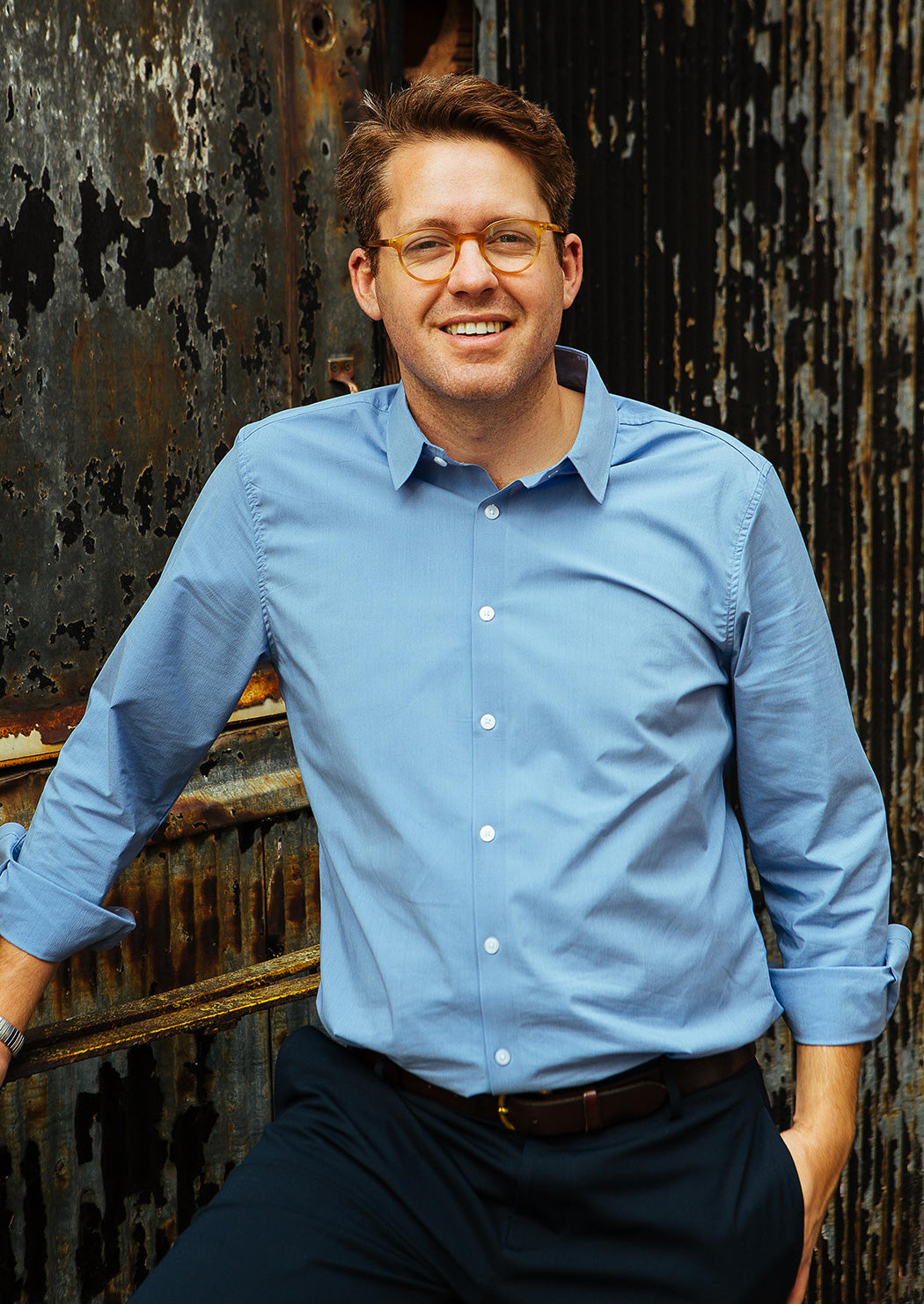
Shop


